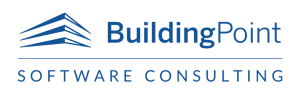Growth in the construction industry is a clear sign that it’s time to facilitate the day-to-day processes in the administrative part of your company. By learning how to do things more efficiently, not only does the company save money, but the employees in the office have more time to focus on important projects. Software trends in the construction industry have made light work out of heavy loads, and the technology that is available is nothing short of amazing.
Most companies hit a point in their growth, were they find they just can’t do things the way they always did them. It becomes too costly and much too time consuming. Often it happens when there are big changes in the company such as expansion, or the amount of work noticeably increases, or unfortunately, it sometimes occurs when a huge costly error was made, that possibly put the company in the line of a lawsuit. It is then that a company realized that their project management needs to be streamlined and consistent.
Smaller companies may not dive into construction software programs, sticking to a manual system, such as a spreadsheet, according to Software Advice. In order to grasp which functions were really helping to make a software purchase look more attainable, Software Advice surveyed prospective buyers.
Software Advice’s findings were:
- 60% of those surveyed want estimating capabilities
- 24% are looking to improve tracking and transparency
- 50% are using manual systems for project management, bid preparation and takeoff calculation
A market research associate at Software Advice, Eileen O’Loughlin, talks about the study they did in 2016, looking at software buyers and what was trending at that time. Estimates was by far the most appealing function, although contractors are very interested in technology that could help the actual building process become more efficient.
“Accounting and job costing is one of the top-requested software capabilities by contractors in our recent analysis of SMB construction software buyer trends,” O’Loughlin said. “Thirty-seven percent of buyers are looking for core accounting modules (GL, AP, AR) as well as job-specific budgeting and cost control. Many of these buyers are looking to track projects alongside their accounting and are looking to switch from a general accounting software, such as QuickBooks, to a more industry-specific solution.”
There are many excellent enterprise resource planning (ERP) software packages available. It has been a good thing for the construction industry that platforms have come out specifically for construction and the many challenges that arise in that industry. Many of the software packages offer and all-in-one type of platform that automates many of the mundane tasks that often was riddled with human error.
Non-ERP, or standalone software, has to be manipulated and often times combined to attain the goals of the company. Again, human error can occur when transferring information from one program to another.
Software Advice states that even small construction companies should consider investing in a complete ERP software platform. The time and money it will save, make it a wise investment.

